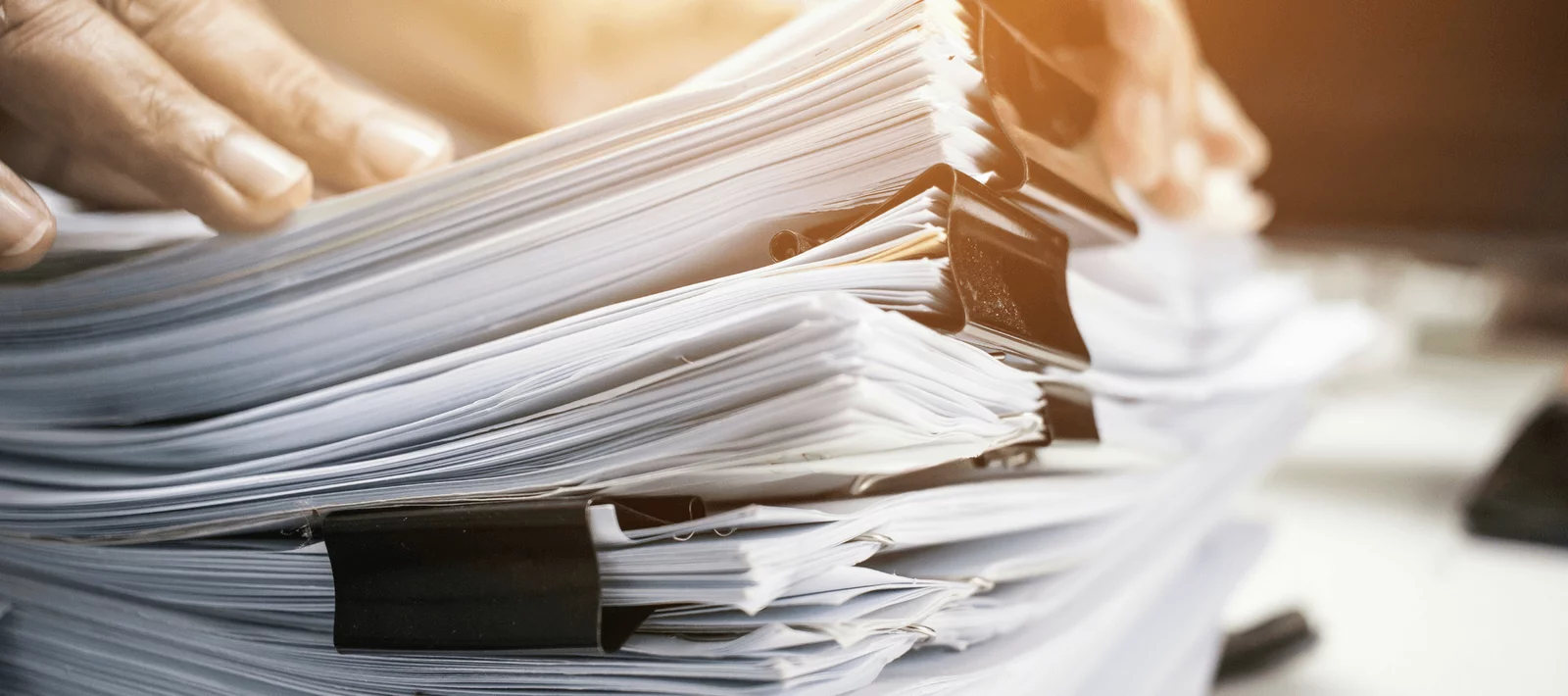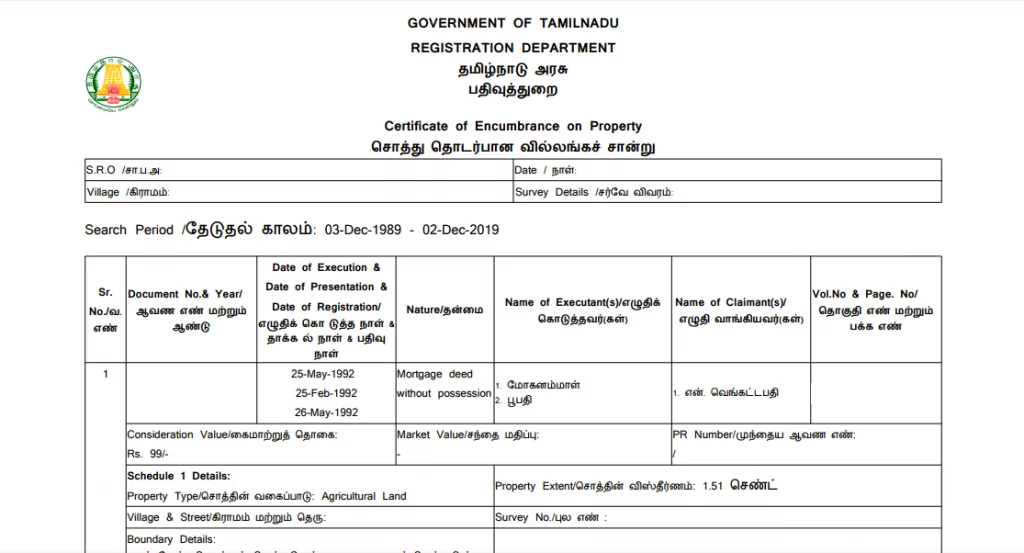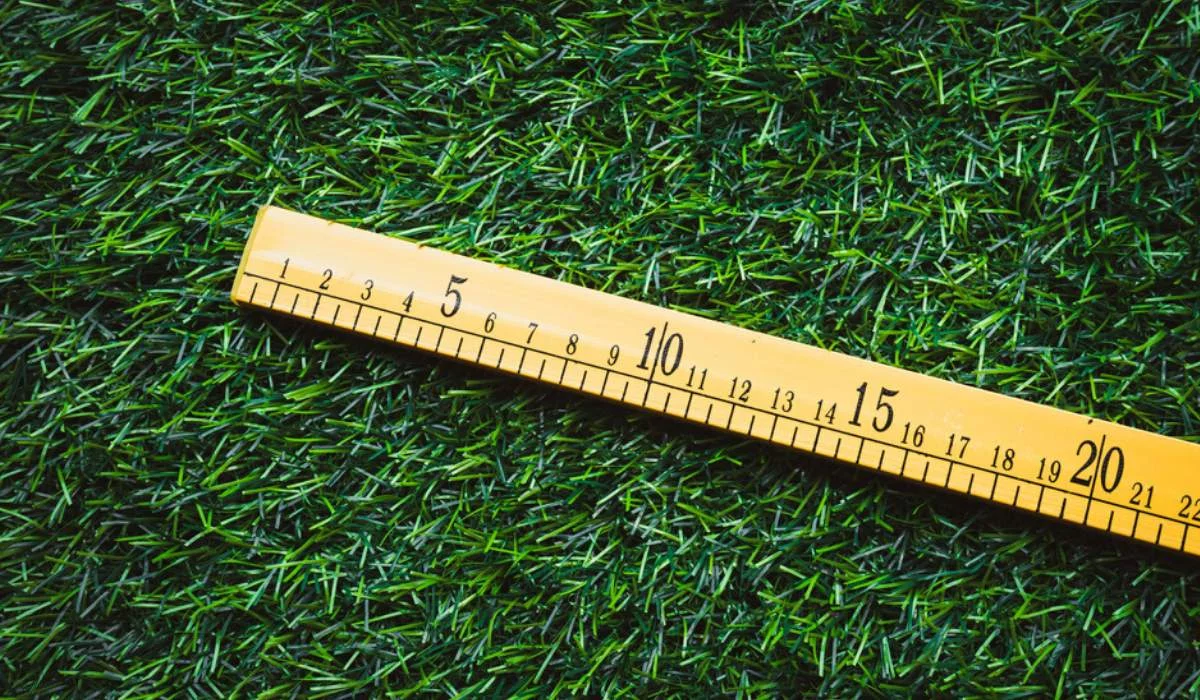Owning a piece of land and building a home of your likings is a dream for many of us. Buying a property is highly capital-intensive, and any mistakes made during the process can cause a great deal of trouble to the buyer.
Buying a plot of land is a very tricky affair especially with so many people creating fake documents and other forgeries. It is very important to exercise due caution while examining the property documents.
In this article, I will talk about all the documents a buyer has to seek and check and also about 11 best tips for buying land.
TABLE OF CONTENTS
1. Verification of the documents
2. Verify the identity of the Seller
3.Measuring the land/plot
4.FSI (Floor Space Index)
5.Drainage connection availability in that locality
6.Electrical lines distance from the plot
7.Is it a newly developed locality?
8.Soil type of that plot
9.Underground water level & water hardness
10.Potential growth of that locality
11.Documents check after purchasing the plot
The following blog will be providing information on the above mentioned topics in detail. You can also directly skip to a particular topic by clicking on it, however we recommend you to read the entire blog to have a full idea about how to choose a residential plot.
1.Verification of the documents
The first tip on 11 tips for buying land is verification of the documents. Paperwork, paperwork, paperwork, this might sound like a nightmare but it is really important. This is a must if you want to spare yourself from the troubles later.
Title deed:
You must insist on a clear title-deed from the seller. Check if the land is in the owner’s name and if he/she has the full right to sell it. Also, check if he/she is the sole owner of that piece of land. While receiving the photocopy of the deed please cross check with the original deed also.
Once you receive the title-deed, scrutinize it. To check these documents you can search for the title deed on the registration website of the state government and don’t forget to consult your lawyer to be sure.
Encumbrance certificate or EC:
The next document you need to verify is EC. Check EC for min 12 years if possible 30 years,(20 of them would be computerized and remaining years would be non-computerized data) must be examined before you proceed any further.
This document can be obtained from the sub-registrar’s office where the title-deed is registered. This document will help you to figure out if the plot or land is free from any legal dispute or unpaid dues and also helps you to know whether the person selling the land is the owner of the plot or not.
he/she is not the proper owner of the land, then check whether the person who is going to sign on the purchase agreement has power of attorney. In many cases, a person who has the power of attorney employs some other person to sell the property and sign on the purchase agreement documents. Note that this is not legal and shouldn’t be allowed. A person with either the EC in his/her name or a person with power of attorney only can sign on the purchase agreement.
For free online encumbrance check in tamilnadu check this link
Property tax receipts:
Make sure you check the previous tax receipts like a vacant land tax of the property. Ask for the originals again to make sure all the payments are paid properly so that there won’t be any legal complications or any surprise expenses after you buy the land.
Release certificate
This certification needs to be checked if you are buying a property that’s been up for resale. This certificate will be issued by the bank indicating that the loans if any on the property have been paid.
Local approvals:
Make sure that the local authorities have given the all-clear on the plot of land you are going to buy.
NRI seller:
If the owner of the land is an NRI, then make sure you get the Power of Attorney (POA) from the seller.
3.Patta, chitta and FMB sketch
Patta has details about the property size, history of property ownership, dimensions etc and it should be in the owner’s name.
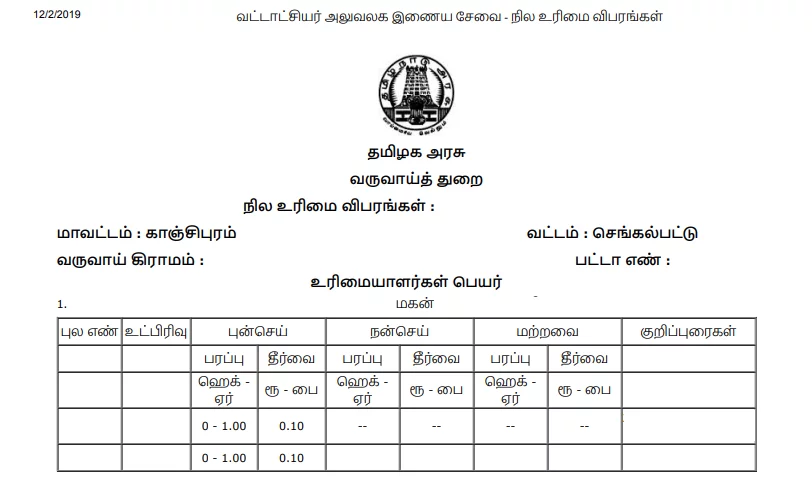
Patta

Chitta
Make sure you verify this Patta of the land. Also, check the Chitta and FMB sketch(Field Measurement Book) also.
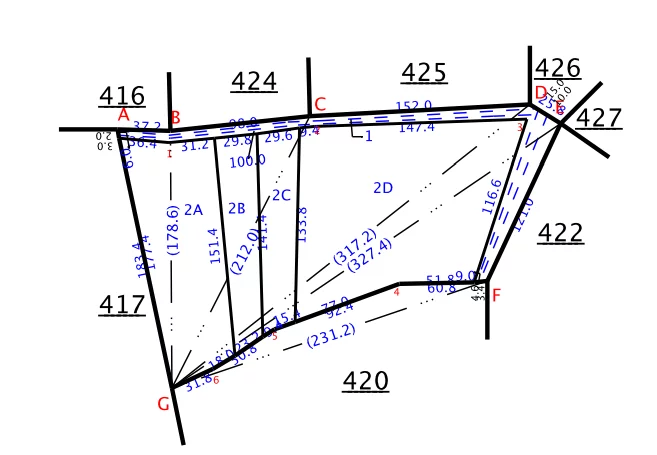
FMB SKETCH
NA(Non-agricultural) order:
Last but not the least you must check the NA(Non-agricultural land) order.By default, all the land in India is agriculture land unless it is designated for some other purpose by the government? Yes, you heard it right. Interesting isn’t it?
Before constructing any type of building (Residential or Commercial or Warehouses or Industrial) one has to first convert the land to non-agricultural land (NA).
There are various types of NA: Those are
- NA – Residential
- NA – Commercial
- NA – Warehouses
- NA – Resort
- NA – IT/ITeS
Just because the land has NA doesn’t mean you can start building up, check if it is of the residential scheme. You cannot build the residential home in a commercial or a warehouse or a resort scheme. Only residential building can be built on residential NA and same for the others NA’s too.
So make sure you ask for a copy of NA – Residential order issued by the Town Planning Authority from the seller before proceeding. There is a thing called NA approved plots by the collector, never believe such misleading things.
2. Verify the identity of the seller:
One should verify the identity of the seller similar to verifying the deed title of the property. If the land/plot is sold by an agent make sure you double-check the owner’s info. Ask for the owner’s details and identity(Aadhar card for instance). The buyer should make sure that the seller has all the rights to sell the property.
To verify the identity of the seller check the below documents mentioned below:
- Residential proof and nationality of the seller.
- In case the land/plot is held jointly, identify all the owners.
- Whoever the seller is(company or partnership firm or an individual or a group of individuals)make sure the person executing and registering the sale deed is duly authorized.
- If the property is held by a minor or person of unsound mind or an NRI make sure you get the Power of Attorney (POA) from the seller.
Checking the ground realities:
documents to be verified before buying a land
After check the tiresome paperwork’s it is time for some ground realities. Here are a few things that you have to check before buying the land or property.
3. Measuring the land/plot:
You must undertake a survey (get help from surveyor) and confirm the extent and dimensions of the plot. After buying it is advisable to find the extent of the land and set the boundaries after buying, this will help you prevent unauthorized person enjoying the property.
4. FSI(Floor Space Index)
For each and every locality this may vary. For instance,if we take Chennai within the Chennai limits each locality will have different FSI value.
If the land area is 1000 sq.ft and the buildup area that can be constructed in this land would be maximum 2000 sq.ft taking into account of maximum FSI i.e. 2 in Chennai. In certain areas the FSI can be 1.5 or 1.75 also. Make sure you buy a land with a good FSI value so that you can get maximum benefit from it.
5. Drainage connection availability in that locality
Check if drainage connection is available in that locality. If not you have construct septic tank or water recycling tank which will an additional cost during the construction process
6. Electrical lines distance from the plot
Make sure you check if the electrical lines are already present or it has to be done newly, suppose if an electrical pole is 100 feet away from your land, for giving a new connection you have to pay some amount to the Tamilnadu electricity board to add an electricity pole near your plot and get electricity connection for your plot which will be an additional cost for you after buying the land.
7. Is it a newly developed locality?
Check if the land is located in a newly developed area if this is the case roads will be developed in the future. So keep in mind that the foundation height has to be increased while constructing the house.
Also,check the land level from the road level, if it is below road level we need to increase the land height and also foundation height, which will be an additional cost.
Also if it’s a newly developed plot by a developer/builder if the soil is filled to raise the height of the plot. If that’s the case you may have to lay a pile foundation for your construction.
Ex: In some places, the natural ground level will be 5 or 6 feet below road level and the developer would have filled soil to raise the height of the plot. For normal house construction, we will have a foundation depth of 6-8 feet below the natural ground level. In this case, natural ground level itself is below 5-6 feet and we have to go 6-8 feet from that. So the total foundation depth will be around 12-15 feet, where pile foundation is the only solution.
We cannot lay the foundation in artificially filled soil as it will be very loose and not strong enough to hold a foundation. There will be too much soil settlement once the construction is completed to the building weight.
8. Soil type of that plot
Check the type of soil before making any decisions. It shouldn’t be clayey soil, if it rains water won’t be absorbed easily so mosquitoes breeding occurs, also bearing capacity will be less compared to other soil types. This, in turn, escalates the foundation cost.
If the soil bearing capacity is low, pile foundation has to be laid which will cost you more than normal foundation.
9. Underground water level & water hardness
Before finalizing the land get a water diviner and check the water level in the plot, it will hardly cost Rs.2000 for checking it scientifically we are going to invest lakhs of amount in purchasing a land, it’s better to spend a small amount like this to ensure the water availability.
Also, make sure you ask about the water quality in the neighbourhoods if possible get a sample and test it. If it is hard water it will spoil your appliances like Motor, washing machine. Also if hard water is used for construction purpose quality issues arises so it’s better to test it beforehand and do some preventive measures like treating making it good for construction and other purposes. We can test the quality of water using low cost portable devices like these
Even after construction, you have to either desalinate or buy water in lorries and fill the sump regularly if the water is not available or it’s not of good quality. Even if you are ready to pay for lorry water in summers water will be in high demand, you might not get water. So make sure you check this before finalizing.
10. Potential growth of that locality
Check if the plot location and its growth. Do your research. Instead of buying in a fully developed area, which is way too pricey, buy in a locality, which is under development this way you can save some cost.
Also check if the basic amenities like the grocery store, hospitals, ATM, schools, colleges etc. are available in that locality.
Make sure you check the potential growth of the plot before making a decision.
11. Documents check after purchasing the plot
- Sale Deed is the document written by a Government licensed Document writer that needs to be registered in the office of sub-registrar to make the sale happen. Until the sale deed is written, you are not the legal owner.
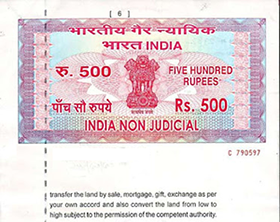
- Get the receipt from payment of stamp duty charges once you have added registered the land in your name.
- Next is to get the house plan approval, if you buy a plot that is approved one you can skip this step otherwise you have to get planning permission from the government. This is a time-consuming process; you can get a professional to help you with this. I strongly recommend you to check this article to know more about how to get planning permission from the government.
Check out our video on what to look for when buying a piece of land below.


